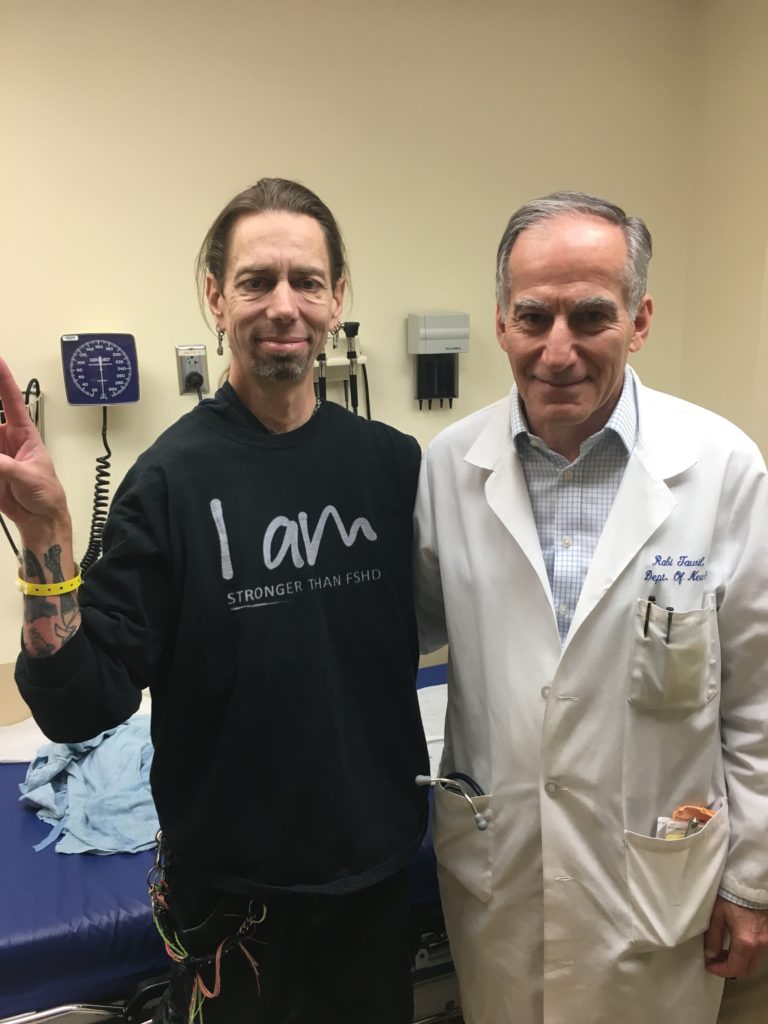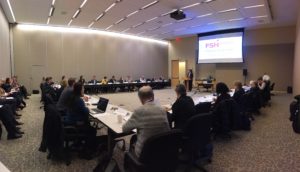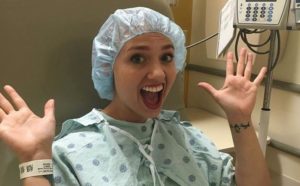
To crack the code of FSHD, patients are absolutely essential
All of the breakthroughs—the discovery of the genetic causes, understanding why some patients vary so greatly in the severity of their symptoms, teasing out the biochemical pathways that could point to future treatments—were made because patients stepped up to the plate.
Too often, we hear patients say they’ll volunteer when there’s a treatment. But we will never get to a treatment unless patients participate in fundamental research now. FSHD is uniquely human, so no laboratory mouse can ever fully model the disease. The genetic “package” that causes FSHD is found only in people. We owe an enormous debt to the patients who give DNA samples. Who submit to long interviews and exhausting physical tests. Allow a surgeon to cut out a small muscle sample. Who fight claustrophobia to lie in the narrow bore of an MRI machine.
Equally important are patients’ family members, both affected and unaffected, who provide the best experimental controls because of their shared genetic and environmental backgrounds. A parent or sibling who has very mild symptoms may hold the key to understanding the factors that protect against the full-blown development of FSHD symptoms in a more severely affected family member.
We are more hopeful today than ever before that a treatment is within sight. We cannot guarantee when that treatment will arrive, but here’s one thing we guarantee: If you volunteer for research, your participation will without question help move us a step closer to that day.
Scientific Overview of FSHD
Read the latest on wikipedia
Glossary of Scientific Terms
Newly funded grants
Steps forward toward new treatments The FSH Society’s board of directors voted to approve $332,906 in funding for three grant applications submitted for the August 2018 cycle. The first project… Read More »
Industry collaborative workshop on FSHD clinical trial readiness
Yesterday, the FSH Society convened a landmark meeting at the Tommy Douglas Conference Center, a stone’s throw from the headquarters of the Food and Drug Administration (FDA). Several FDA regulators… Read More »
Giving a piece of me for research
by HILARY A. C. HOOVER, Ocala, Florida I tested positive for the FSHD gene and am currently asymptomatic. Due to my status, I was asked to donate muscle tissue via open… Read More »
FSHD Society names Jamshid Arjomand, PhD, Chief Science Officer
The FSHD Society today announced that Jamshid Arjomand, PhD, has joined the organization as its Chief Science Officer. The Society is the world’s largest research-focused patient advocacy organization for facioscapulohumeral… Read More »






